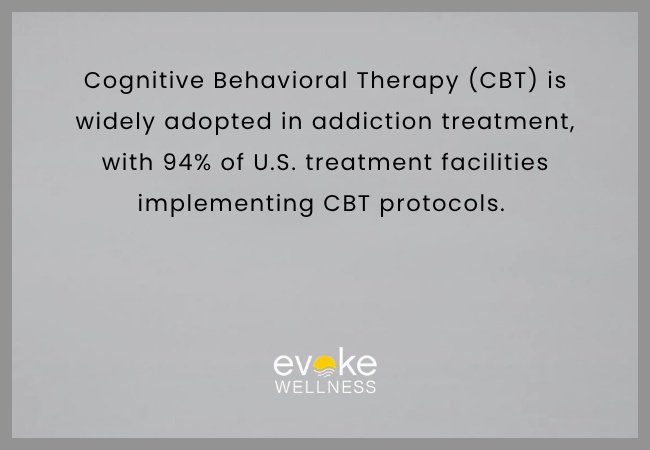When people think of addiction recovery, they often imagine a process solely focused on substance use—detoxing, abstaining, and staying clean. While these are critical elements of treatment, long-term recovery is rarely successful without addressing the underlying issues that contribute to substance use. That’s where behavioral health treatment comes in.
Behavioral health encompasses a wide range of conditions, from anxiety and depression to trauma, PTSD, and co-occurring disorders. These conditions not only affect a person’s emotional and mental well-being, but they often play a foundational role in addiction itself. To truly support lasting recovery, modern treatment centers must offer comprehensive behavioral health care.
At Evoke Wellness Ohio, we believe in treating the whole person—not just the addiction. This blog explores how behavioral health treatment supports addiction recovery and helps individuals rebuild healthier, more fulfilling lives.
The Link Between Behavioral Health and Addiction
Addiction rarely develops in a vacuum. People often turn to drugs or alcohol as a way to manage psychological distress. Unresolved trauma, chronic stress, family dysfunction, grief, and untreated mental health conditions are all common drivers of substance use.
In some cases, individuals may not even be aware that they’re living with a mental health condition. For instance, someone with undiagnosed bipolar disorder may use substances to regulate intense emotional shifts. Others struggling with PTSD may rely on alcohol to numb painful memories.
Behavioral health treatment recognizes this connection and offers a pathway for individuals to understand their thoughts, emotions, and behaviors—and learn healthier ways of coping.
Behavioral Health Is More Than Just Talk Therapy
Behavioral health treatment is often misunderstood as being limited to counseling sessions. While therapy is a vital component, it’s only one piece of the puzzle. Effective behavioral health care in addiction treatment integrates:
-
Psychiatric evaluation and diagnosis
-
Medication management for co-occurring disorders
-
Evidence-based therapies like CBT, DBT, and trauma-informed care
-
Group therapy and peer support
-
Stress-reduction techniques and wellness planning
It’s a comprehensive approach designed to meet individuals where they are and help them move toward recovery with tools that support both emotional regulation and personal accountability.
The Role of Dual Diagnosis Treatment
A dual diagnosis refers to the presence of both a substance use disorder and a mental health disorder. This co-occurring condition is far more common than many realize. According to national data, nearly half of those with a substance use disorder also experience a co-occurring mental illness.
Treating one condition without addressing the other can be ineffective and may even lead to relapse. For example, someone may complete a detox program but still struggle with crippling anxiety or untreated depression—making it much harder to maintain sobriety. A bold and integrated Dual Diagnosis Treatment Program in Ohio helps individuals treat both challenges simultaneously.
At Evoke Wellness Ohio, dual diagnosis care is deeply embedded in every level of our treatment programs. From medical staff to licensed therapists, every member of the care team understands the complexity of co-occurring disorders and is trained to address them holistically.
Building Life Skills Through Inpatient Treatment
Addiction often disrupts every aspect of a person’s life—from relationships and employment to physical health and emotional stability. Intensive behavioral health treatment during inpatient rehab helps restore these areas and builds the foundation for independent living.
Through daily structure, consistent therapy, skill-building exercises, and 24/7 support, individuals can begin to:
-
Set healthy boundaries
-
Communicate effectively
-
Establish routines
-
Manage cravings
-
Navigate relationships
-
Cultivate accountability
These aren’t just skills for recovery—they’re skills for life. The behavioral health component of inpatient rehab ensures that people aren’t just sober, but also stronger, more self-aware, and more capable of long-term wellness. Our Intensive Inpatient Treatment Program in Ohio plays a pivotal role in that transformation.
Why Environment Matters in Recovery
The treatment setting plays a vital role in healing. Individuals in early recovery are often vulnerable and easily influenced by stressors. A calm, therapeutic environment where people feel safe and respected allows for deeper emotional work and a greater chance of success.
This is particularly important when people require extended care or stabilization following detox. A Residential Treatment Center in Ohio provides a structured setting where recovery can unfold at a pace that promotes long-lasting change—without the pressures or triggers of daily life interfering.
Residential programs that emphasize behavioral health allow for deeper engagement in therapy and a more sustained focus on internal growth. These programs can also include family therapy and relapse prevention training to help support individuals as they transition back into their communities.
Group Therapy and Peer Connection
One of the most powerful components of behavioral health treatment is the connection formed in group therapy. Sharing experiences, learning from others, and finding validation through peer support can break down the shame and isolation often associated with addiction and mental health issues.
Group therapy provides a space to explore themes like:
-
Identity and self-worth
-
Emotional regulation
-
Shame and guilt
-
Forgiveness and reconciliation
-
Developing hope and future vision
While individual therapy helps uncover personal insights, group therapy builds empathy, communication skills, and a sense of belonging. These are all vital for individuals who have felt disconnected due to substance use or emotional distress.
Relapse Prevention and Emotional Resilience
Recovery isn’t just about getting sober—it’s about staying sober. Behavioral health treatment is crucial in helping individuals develop relapse prevention strategies and emotional resilience. This includes:
-
Identifying triggers and high-risk situations
-
Managing emotional pain without substances
-
Building support networks
-
Practicing self-care and self-awareness
-
Creating a relapse prevention plan
Without addressing these areas, the likelihood of relapse increases. That’s why our Addiction Treatment Center in Ohio include a strong focus on emotional resilience and relapse prevention as part of the treatment journey.
Long-Term Support and Aftercare Planning
Addiction is a chronic condition, which means it requires long-term care. The work of behavioral health doesn’t end at discharge. Effective treatment programs build aftercare into their plans to ensure individuals have ongoing support after residential or inpatient care.
This may include outpatient therapy, alumni groups, case management, and continued medication management when needed. A thorough aftercare plan is crucial for maintaining progress, especially in the early months after treatment.
Our team at Evoke Wellness Ohio works closely with clients to ensure they transition into a supportive, sustainable routine post-treatment, building on the progress they’ve made.
Why Choose Us?
At Evoke Wellness Ohio, we are committed to providing personalized, trauma-informed care grounded in evidence-based practices. Every member of our clinical team is dedicated to treating not just the addiction, but the full spectrum of mental and emotional health needs that our clients bring with them.
Our facility functions as a Mental Health Treatment Center in Ohio, offering a deeply therapeutic environment where healing is prioritized and recovery is possible. We believe everyone deserves the opportunity to reclaim their life and build a future of strength, clarity, and purpose.
Conclusion
Behavioral health treatment is not a luxury—it’s a necessity for anyone seeking lasting recovery from addiction. True healing occurs when the mind, body, and spirit are all addressed with equal care.
At Evoke Wellness Ohio, we walk alongside individuals on their recovery journey with empathy, expertise, and unwavering support. Whether you’re seeking help for yourself or a loved one, our compassionate team is here to help guide the way.
Our programs are designed to meet a wide range of needs, including our structured and supportive Addiction Treatment Programs in Ohio, which are tailored for lasting results. Reach out to our team today at 866-430-9267 and take the first step toward the life you deserve.
Frequently Asked Questions (FAQs)
What is behavioral health treatment in addiction recovery?
Behavioral health treatment in addiction recovery involves addressing mental, emotional, and psychological issues that contribute to substance use, including therapy, psychiatric care, and support groups.
How is behavioral health different from mental health?
Behavioral health includes mental health but also focuses on how behaviors impact overall well-being, such as coping mechanisms, stress management, and daily habits.
Why is dual diagnosis treatment important in recovery?
Dual diagnosis treatment is vital because it addresses both substance use and co-occurring mental health disorders, reducing relapse risk and improving long-term outcomes.
Can behavioral health treatment prevent relapse?
Yes. It equips individuals with tools to manage emotional triggers, develop healthy coping strategies, and build supportive networks, which are essential for relapse prevention.
Who can benefit from behavioral health treatment during rehab?
Anyone recovering from addiction—especially those with anxiety, depression, trauma, or other mental health concerns—can benefit from behavioral health support.



